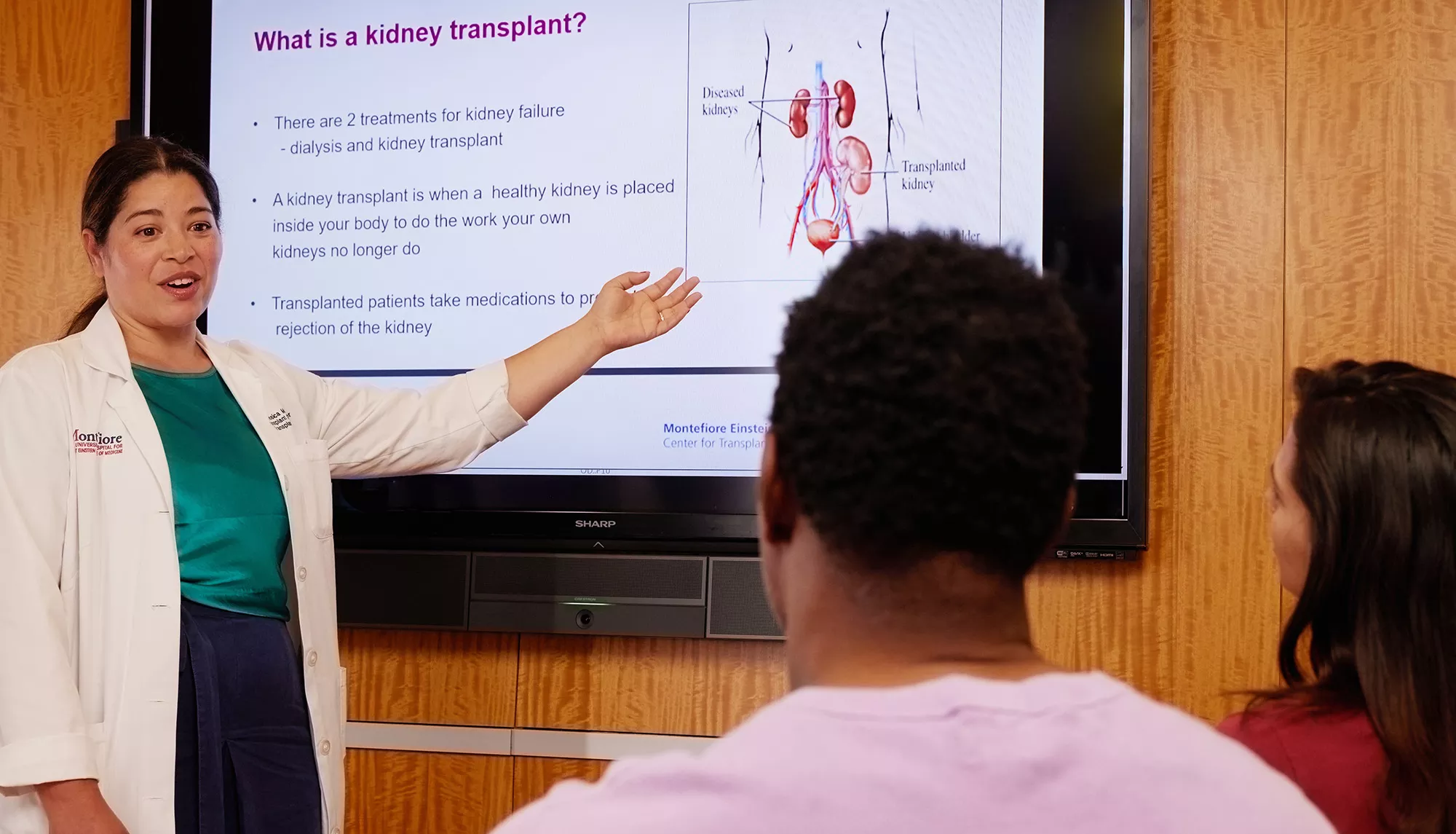What to Expect
Montefiore Einstein provides comprehensive care during every stage of pancreas transplant from surgery through recovery and after-care. Our Transplant Center has one of the largest pancreas transplant programs in the nation, and the largest in the Northeast, led by an interdisciplinary team of world-renowned surgeons with access to the latest research, techniques, and technology.
Evaluation & Education
The first step in the pancreas transplant process is to undergo an evaluation to make sure that transplant is the best option for you. During your evaluation, you will meet with multiple team members, including a transplant physician, transplant coordinator and social worker, who will provide you further resources to help you understand the details of your surgery. Your doctor will order blood tests to check your heart and other organs, as well as evaluate your mental and emotional health. This helps ensure that you’re prepared for your recovery—with a solid support system in place.

Placement on the Organ Donor List
Once a patient is determined to be a candidate for pancreas transplant, they are placed on the national waiting list. Recipients are prioritized according to factors determined by UNOS (United Network for Organ Sharing) including blood type, distance between donor organ and patient, size of donor pancreas, and severity of condition. You may reach out to UNOS with any questions by calling 1-888-894-6361 or by visiting UNOS.org.
Understanding the Risks
Pancreas transplant surgery carries several risks:
- Blood clots
- Bleeding
- Infection
- Excess sugar in the blood or other metabolic problems
- Urinary complications, including leaking or urinary tract infections
- Failure of the donated pancreas
- Rejection of the donated pancreas
Transplant Surgery
During pancreas transplant surgery, your surgeon places the donor pancreas and a small portion of the donor’s small intestine into your lower abdomen. Your own pancreas is typically left in place to aid digestion. If you are also receiving a kidney transplant, the donor kidney will be attached to blood vessels in the lower part of your abdomen. The new kidney’s ureter, the tube which links the kidney to the bladder, will be connected to your bladder. Your own kidneys are typically left in place.
Recovery & After Care
After transplant surgery, you will be monitored closely to ensure that your new pancreas is functioning properly. You will also need to take lifelong immunosuppressant medication, which prevents and treats organ rejection by reducing your immune system’s response to your new pancreas.
Receiving a pancreas transplant requires lifelong follow-up care. Throughout your recovery and as you return to daily activity, our transplant team will monitor you closely to ensure postoperative success. During the first year, you will be seen regularly for lab work and routine evaluation. These tests help determine how well your pancreas is functioning. As you continue to recover, our physicians will provide comprehensive, continuous care to help return you to optimal quality of life.





